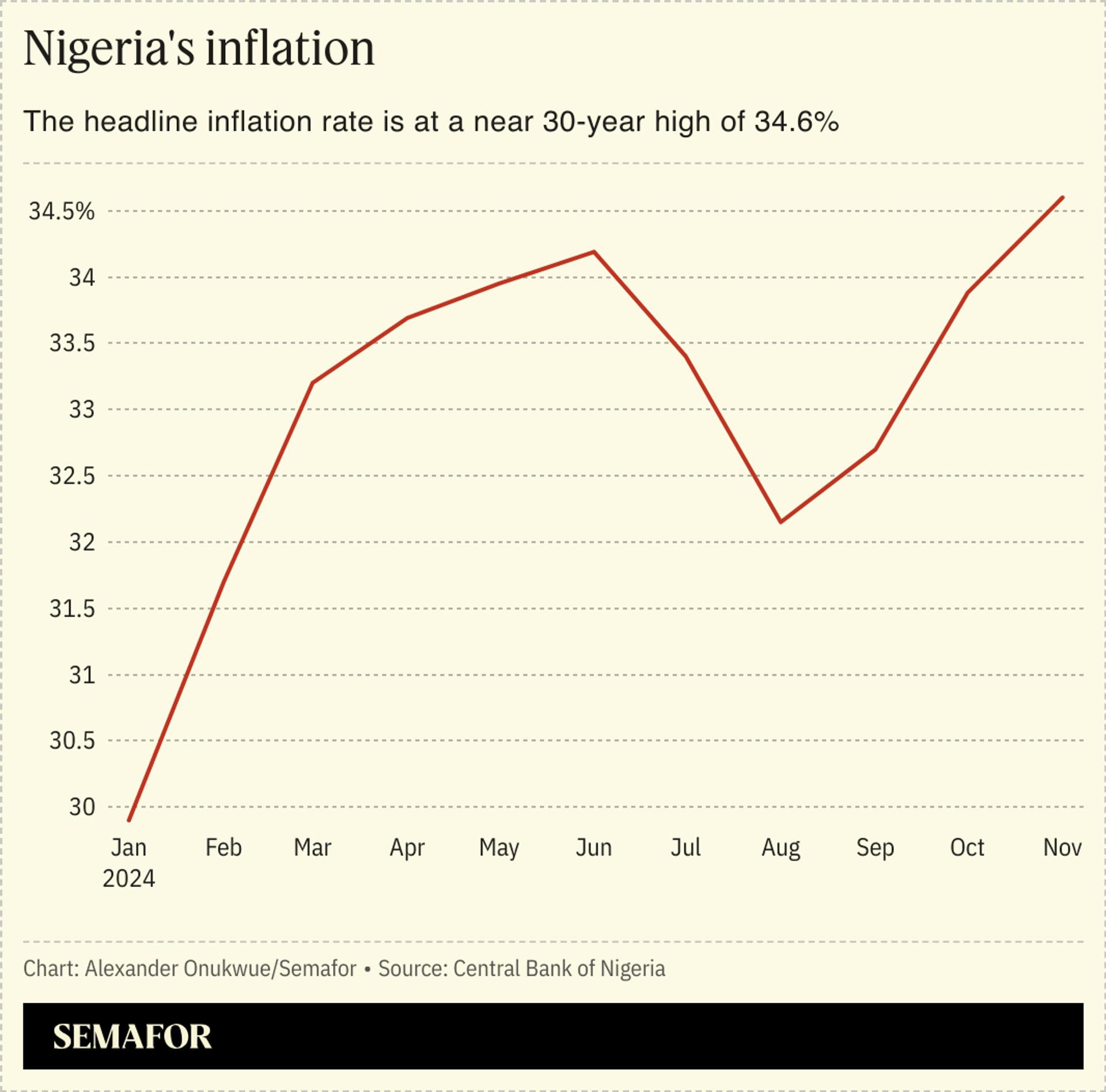The News
British consumer goods company Reckitt intends to deepen its presence in Nigeria, confident that a turbulent economic climate that shook up the retail sector is beginning to turn the corner.
Nigeria’s economy since the end of the COVID-19 pandemic has been marked by high inflation, a sharply weakened currency, and widespread consumer anxiety. Some of the world’s best-known consumer goods giants have scaled down, sold, or shuttered operations in the country as a result, including Procter & Gamble and drinks maker Diageo, who have deprioritized Nigeria to focus on markets deemed more profitable.
But Reckitt says it has navigated the turbulence and will make Nigeria even more central to its Africa strategy. “We’ve seen a lot more economic stability in the last one year than in the years before,” Akbar Ali Shah, Reckitt’s general manager for sub-Saharan Africa, told Semafor Africa.
Central bank reforms imposed since President Bola Tinubu took office in mid-2023 yielded a market-driven foreign exchange regime that Shah said has given companies easier access to dollars from commercial banks, enabling Reckitt to repatriate profits from Nigeria in 2024 for the first time in years.
The company has “a carved out plan for the next five years” to expand its factory on the outskirts of Lagos, he said, including adding new facilities to increase product volumes and exports to other markets in Africa.
In this article:
Alexander’s view
Reckitt has enjoyed a decades-long presence in Nigeria and many of its products — from its Dettol antiseptic to Strepsils lozenges — are household names that Nigerians associate with quality. Its decision to stay put in Nigeria is a handy measure with which to gauge foreign investor sentiment as well as the performance of the Tinubu administration.
By committing to Nigeria it appears Reckitt is betting that its business will remain profitable in the future. When P&G scaled down in 2023, by contrast, it said Nigeria was a “very difficult” place for a US dollar-denominated company to create value, saying its $50 million operations in the country were “really small” in the context of its $85 billion global portfolio.
Know More

As Shah tells it, Reckitt’s bet on Nigeria is anchored on reducing dependence on imported ingredients and, as a result, the constant need for dollars. Nine in 10 products it sells in Nigeria are now made in the country, he said, following a years-long process of sourcing and vetting multiple local suppliers for raw and packaged materials.
Achieving profitability also means changing from business-as-usual in an environment with a 34% inflation rate. Patrons at nightlife restaurants and bars in Lagos are trimming orders to adjust to rising prices. Consumers are opting for cheaper homecare and hygiene brands, too.
Reckitt’s response has been to resize inventory to smaller packs for the mass market, “sort of like a Nigeria-specific innovation,” Shah said. A toilet cleaner the company normally sold in plastic bottles is now available in sachets, embodying a so-called “sachetization” shift that took off with manufacturers in the country after the pandemic.
Shah does not anticipate another currency devaluation in Nigeria and said the company will not undertake steep price increases, though “gradual price increases are expected.”
Deeper roots in Nigeria will enable Reckitt to increase distribution in Africa over the next few years, the company said. In Kenya, Reckitt has doubled manufacturing and continues exporting to other countries in East Africa. Exports from Nigeria to Ghana and Côte d’Ivoire have “generated significant forex” that has allowed the company to be “self-sufficient,” Shah said.
Room for Disagreement
Consumer goods companies that continue operations in Nigeria remain vulnerable to an uncertain policy environment. The president’s $30 billion budget proposal for 2025 projects inflation will slow to 15% this year, an expectation some analysts say is optimistic.
Nigeria’s economic growth in 2025 is projected to be “sluggish and marginal” while the dollar exchange rate will “remain highly volatile,” Abuja-based policy consultancy Veriv Africa wrote in its macroeconomic outlook. High food inflation caused by insecurity in much of the country will sustain inflationary pressures on the economy, Veriv noted.
Notable
- The push by consumer goods companies to exit Nigeria has been mirrored by oil majors Eni, ExxonMobil, and Shell, which have recently sold onshore assets deemed difficult to operate.
- African markets should be better integrated, The Economist argued in a special report on the continent, so that firms can reach a “size big enough to attract global investors.”
